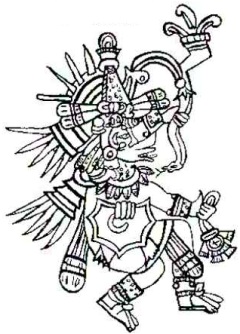 Correlation is not causation. How many times have we heard that sentence? Too many times maybe, because we seem to be mithridatized by it. Nowadays, it seems like it’s nothing more than an easy way to discard inconvenient facts. It is true that correlation is not causation, but what does that mean?
Correlation is not causation. How many times have we heard that sentence? Too many times maybe, because we seem to be mithridatized by it. Nowadays, it seems like it’s nothing more than an easy way to discard inconvenient facts. It is true that correlation is not causation, but what does that mean?
 Logic is a tricky thing. Any sound argument must rely on it, but it is easy to build seemingly sound and logical arguments that are still wrong or fail to apply to the real world. Fuzzy or wrong premises, shortcuts in reasoning, as well as plain fallacies such as circular reasoning, are easy to obfuscate, and apologists are kings at this game. It's what they do: take the conclusion they want to reach, and then build the rationalization for it. A prime example of this is the age-old ontological argument for the existence of God, that I will be looking at in details in this post.
Logic is a tricky thing. Any sound argument must rely on it, but it is easy to build seemingly sound and logical arguments that are still wrong or fail to apply to the real world. Fuzzy or wrong premises, shortcuts in reasoning, as well as plain fallacies such as circular reasoning, are easy to obfuscate, and apologists are kings at this game. It's what they do: take the conclusion they want to reach, and then build the rationalization for it. A prime example of this is the age-old ontological argument for the existence of God, that I will be looking at in details in this post.
 Here is a little experiment. I have built a bunch of programmed agents that are using a variety of strategies to try and predict the outcome of a randomized event. The event in question is the roll of a dice. The twist is that the probabilities of all sides of the dice are not equal: there is a distribution of probabilities that is itself decided randomly before the experiment.
Here is a little experiment. I have built a bunch of programmed agents that are using a variety of strategies to try and predict the outcome of a randomized event. The event in question is the roll of a dice. The twist is that the probabilities of all sides of the dice are not equal: there is a distribution of probabilities that is itself decided randomly before the experiment.
 This is a claim I've read so many times in comments that I think it deserves a little debunking. If you do a search on that little sentence, you'll see that it's very rarely if ever used in a scientific context but is repeated like a mantra by religious apologists. They seem to be persuaded that it is an established rule of logic.
This is a claim I've read so many times in comments that I think it deserves a little debunking. If you do a search on that little sentence, you'll see that it's very rarely if ever used in a scientific context but is repeated like a mantra by religious apologists. They seem to be persuaded that it is an established rule of logic.
 Most of the debate tends to be around theism versus atheism. But there is so much more! Let's review the full set of hypotheses:
Most of the debate tends to be around theism versus atheism. But there is so much more! Let's review the full set of hypotheses:
- x = 0: atheists think there is no god.
- 0 ≤ x ≤ Infinity: agnostics think there may be between zero and an infinity of gods. Interestingly, the set of natural numbers plus infinity is called "supernatural numbers".
- x = 1: monotheists think there is one God.
- x ∈ ℕ*, x > 1: polytheists think there is more than one god.
- x ∈ ℚ: in some polytheist religions, gods can procreate with humans, which gives demigods. If demigods then procreate with humans, does that make quartergods? This is of course assuming the divinity of humans is zero. ℚ is called the set of rational numbers, which doesn't make this position especially more rational than the others...
So where do I stand? I think x ∈ ℂ: there is a number of imaginary gods. I guess that makes me a complexotheist.